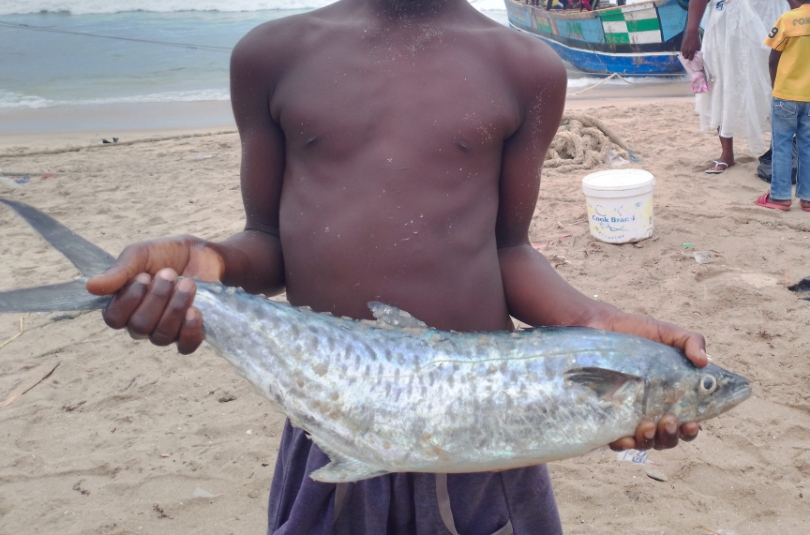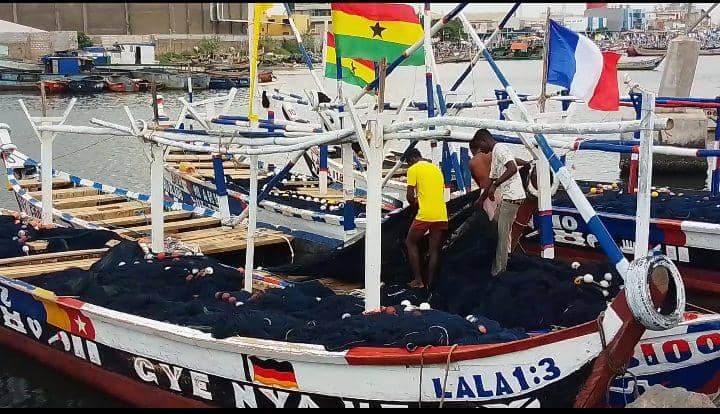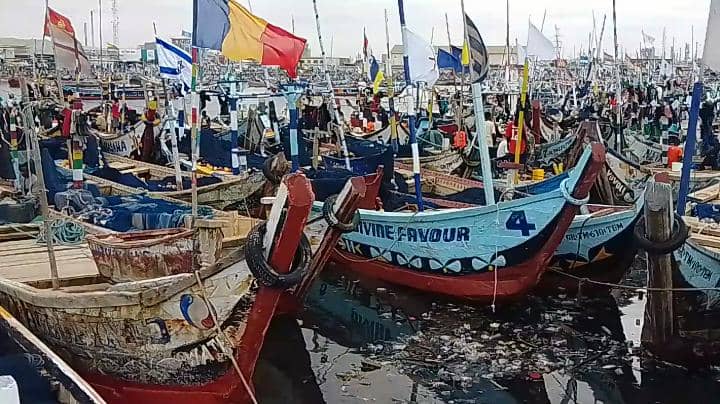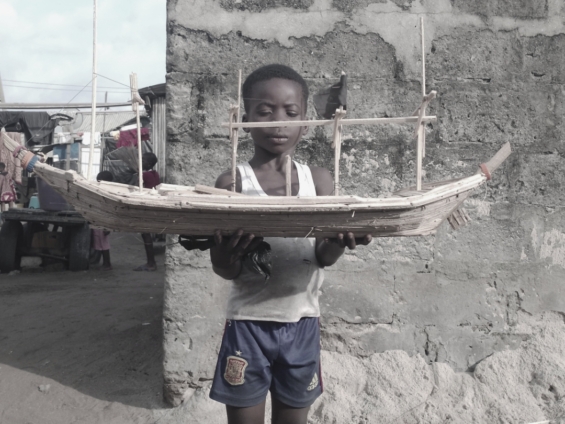India has a renowned adage that reminds its indigenes to cherish the earth; “Only when the last tree has died and the last river has been poisoned and the last fish has been caught will we realise we cannot eat money.”
It is no news that Ghana's marine resources are on the verge of collapse. What is news is the blatant disregard of the alarming impact of the dying fisheries sector.
The majority of fishermen are with little or no formal education or alternative livelihood. Their livelihood solely depends on the sea.
During the good old days, from June, July, August, and September through to October, fishermen experience the best of life, enjoying bumper seasons.

I still have fresh memories of bountiful catch days in my childhood. When our fathers used simple equipment and little effort on fishing expeditions yet, they returned home with a bumper catch.
Those days, ‘konko hemaa’, to wit, lead female lobbyist will petition the chief fisherman to ban his men from going to fish because fishmongers are unable to process catch from previous fishing expeditions.
Three days later, fishermen will dig a vast pit on the beach, and all fishmongers will dump their spoilt fish into it.
Life at the beach was so good growing up as a child. Around the bumper seasons, we abandoned our homes to hustle for fish which we eventually sold to make money. It is safe to say the money we were getting from the seashore hustle was part of the reasons many fisher folks did not go to school.

The landing beaches fluted up with activities - from canoes gliding to offloading fish to others embarking on a fresh adventure. Twenty-four hours a day and seven days a week, fishers were raking from the sea incessantly.
With this catch, the canoe owner made a good income and started buying more canoes and different types of nets for different fisheries sectors.
Realising how lucrative the fishery industry is, formal sector workers and the business community started investing hugely into the sector spreading the beaches with more canoes and vessels.
For emphasis, this expansion did not happen in one community. It replicated across semi and industrial fishers through landing beaches.
Now, the motive of fishing shifted from just feeding home to one that seeks exponential returns on investments. Along the line, the sector experienced high levels of competition among canoe owners. The number of times your canoe could go fishing in a day and how much fish they returned with was highly celebrated.

In the quest to lead the race by canoes, they use harmful chemicals like Dichlorodiphenyltrichloroethane (DDT), Carbide, and explosives like dynamite to induce catch. These bad practices daily for decades reduced the marine resources drastically.
Though the above practices were and still are harmful to biodiversity and the marine ecosystem, fishers had to search and locate fish before they could apply them.
The last straw that broke the camel's back was the advent of light in fishing. With light, all that fishers have to do is to go settle (anchor) their canoes or vessels inshore and dip two or three 1000-watt light bulbs, power them by a generator. The bulb light will attract and aggregate tons of fish from diverse species.
During this era, the fishing sector bounced back to its peak for over a decade. The glory fishing days were revisited thanks to the fish aggregator 'light'.
The industry saw another recess. Despite the new technology to trap fish, canoes returned home almost empty.
I'm sure you are asking why. The light fishing method did not discriminate; it attracted all kinds of species, including fingerlings.
This means the younger fish to grow and spawn to replace the depleted ones were all caught, leaving no room for renewed fish stocks.

Yes, you cannot overlook the short-term economic impact of light fishing on fisher folk but imagine the devastating woes on the future generations
A collapse fishing industry implies that some 3 million Ghanaians will kicked out of employment, adding up to the century-old carcass of unemployment around the government's neck.
What is more worrying is that the majority of these exuberant men and women do not have professional skills, trade or any alternative livelihood aside from fishing and its related endeavours.
The irony of the issue is that Fishers have not realised that bad fishing practices are the cause of the ever-depleting fish in our sea.
Blatantly they refuse to accept responsibility and the need to amend their ways of catching fish to one which will protect our marine ecosystem and the sector in general for the future.
Rather, our fisher folks see any measure by the government to regulate the sector as a means of denying them their livelihood. They continue to refuse to comply with the measures put in place. The question which begs for an answer. How well does the collapsed fishery industry affect our politicians?
Undeniably, politicians are the duty bearers and owe us the responsibility of making sure every sector of the economy works.
Cooperation from the citizens to make it work is principal in realising the change.
I guess you are thinking of the government establishing laws right?
There is a legislative instrument dating back to 1968 known as the Fisheries Regulation Legislative Instrument (L.I 1968) and amended in 2010.
But, how long should the government arrest fishermen for breaching the fisheries regulations?
Given the political trend of the four-year voting cycle, both past and current governments face the dilemma of fervently enforcing the law and losing the votes of fisher folks or playing empathy and securing the votes of fisher folks.
The onus is on the government to engage fishing communities to foster behavioural change. The government must take painful yet unavoidable steps to protect the marine fisheries sector.
Yes, the Ministry employs marine and oceanic ecology experts, among other technocrats, to research and understand issues in the sector but at the blind side of the fisher folks.
This is because some fisher folks believe strongly that government do not understand their reality, and, therefore, every measure or step towards protecting the sustainability of the sector is misinformed, misplaced and misapplied.
Inviting Chief Fishermen, a representative from a fisheries-related association, to Accra for meetings does not help the larger masses to appreciate first-hand the discussion of fisheries conundrums. It is about high time the government descended to the community level to dialogue to have majority participation and inclusion.
Occasionally, ceremonies can be held on pressing fisheries issues and challenges in the sector.
Analysing the depletion of our marine resources, the dying fisheries sector, the economic and environmental threat it poses to the fraction of the Ghanaian population that depend on the sea for livelihood, the younger generation and the Nation at large is necessary. The government and the fisher folks must join hands to say no to illegal and bad fishing practices.
Currently, the galamsey menace hovers around us in different forms in our oceans and needs urgent attention.
Latest Stories
-
‘I’m no longer a politician’ – Asamoah Gyan denounces NPP to focus on humanitarian work
1 hour -
Damaged effigies: Court awaits comprehensive report on accused mental status
1 hour -
Phase 2 of Access Bank’s ‘A Sandal More for a Better Tomorrow’ initiative takes off
2 hours -
Kuntunse murder: Police pray for more time to complete investigations
2 hours -
New president of UN General Assembly calls for unity to tackle borderless issues
2 hours -
Land occupied by Asaase radio not connected to disputed Cantonments property, says Lands Commission
2 hours -
As Harris and Trump debated, a social media battle raged
3 hours -
AngloGold in $2.5bn deal for Centamin, targets ‘Tier 1’ assets
3 hours -
Harris rattles Trump in combative debate
3 hours -
Congressman Joe Wilson collapses at event, rushed to hospital
3 hours -
California passes requirements on carmakers and domestic violence
3 hours -
Takeaways from the Harris-Trump presidential debate
3 hours -
Key quotes from the Harris-Trump debate
4 hours -
Taylor Swift says she will vote for Kamala Harris
4 hours -
Protesters storm Mexico’s Senate after ruling party wins votes for court overhaul
4 hours

